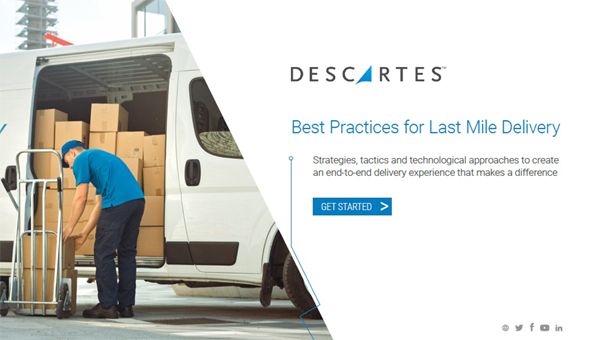How do you ensure success from a new fleet optimisation solution? An effective change management program is essential to carry out your projects!

Why are there so many disparities in the performance of fleet solutions?
Why do some companies derive more value than others from their supply chain over time?
By analysing all the situations and the different projects that I have been able to follow over the past 20 years, change management is usually one of the strategies with the most impact, in the short and long term.
It is not enough for supply chain and logistics solutions to be implemented for them to reach their peak performance, they must also be fully integrated into the company's business strategy and operational business processes. This is where change management becomes essential in transforming the company and fully capitalising on the benefits offered by these solutions. Since most people do not naturally accept change, the success of a project can be significantly threatened without a change management strategy, an action plan and dedicated resources.
What is Change Management?
Many people confuse project management with change management. Well-managed projects facilitate the deployment of logistics and fleet management solutions, as originally planned in their specifications. Change management, on the other hand, prepares, supports and assists individuals, teams and companies adopt the changes brought about by the new solution.
Project management and change management: 2 sides of the same coin
Project management and change management must go hand in hand Because everyone can "go with the flow " and use new solutions but not necessarily adopt them. With the right and well-executed change management strategy, problems can be avoided, and companies can even exceed their initial goals in many cases.
As Isabelle Libert, Executive Assistant of Jacques Remy & Sons, a specialist in the delivery of fresh fruit and vegetables in Belgium and France, explains:
"In 2 months, we completely transformed our fleet transportation management and we have improved our customer satisfaction, while optimising the tracking of goods and reducing our costs. Change management has been, and still is, an essential part of our strategy; It should not be underestimated. The employees involved must clearly understand the benefits of the newly implemented system. For example, the person managing the delivery schedules must be fully involved; otherwise, the implementation of the new solution will take much longer than necessary."
The 7 Principles of Change Management
1. Clearly differentiate between the change management team and the project team, they are not the same people.
The project team already has enough to do with the implementation of the new fleet solution. The change management team will focus on the transformations involved in this solution and understand how the company and its employees can integrate them into their daily processes.
2. Focus on the added value.
A business is made up of individuals who should embrace the new solution and understand its value. What does this new tool bring to the company and fleet operation? And, more importantly, what does it bring to them individually? The value of the solution may be different, depending on each person's role. This value must be tailored to each individual’s role to be relevant.
3. Engage ambassadors, influencers and experts.
Every company has employees respected for their expertise, work ethic, etc. These are the people (who are not necessarily the managers) that other employees will turn to when they need advice.
4. Communicate as much as possible.
Don't assume that everyone is aware of the project’s progress. It is better to spread the word to gain the support of sceptics of the project. Be clear about what is working and what is not, and why.
5. Clearly demonstrate the value of the solution.
It is important to have metrics that show improvements in performance and adoption across fleet operations. Monitoring adoption is important because some will do everything to avoid using the new solution.
6. Be resilient.
Teams will naturally be sceptical at first, especially regarding the managers' speeches. Observe how the management team acts. Make sure that a manager is always present to provide positive reinforcement, and for employees to witness the involvement of the senior management team in the management of the change to the new solution.
7. Do not completely dissolve the change management team after the solution goes live.
Create a team of experts or a centre of excellence that will support new users. This will ensure that everyone is taking full advantage of this new tool and allow the team to focus on ways to bring even more value to each individual and the overall fleet operations.
Summarising Change Management for Fleet Success
With all the value that a new fleet solution can bring, it would be a mistake to overlook change management! It can completely unleash the full potential of the fleet and maintain it over time. Change, no matter how impactful, is not natural for most people. It is, therefore, necessary to work on the buy-in of all the company's employees to successfully implement a new supply chain or fleet management tool.
And you? How does your company integrate change management to maximise the results of your project in your fleet operations?
Find out how Descartes can help you get the most out of your fleet.


